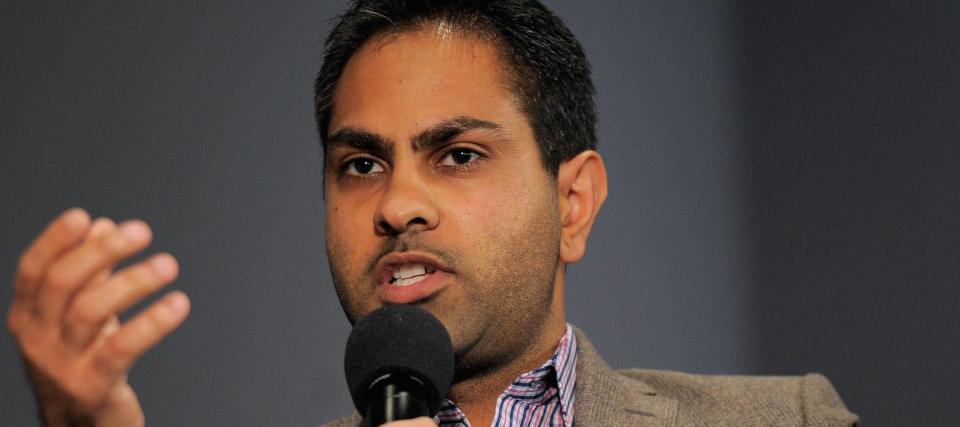Ramit Sethi says 'people with a lot of money' rarely keep enough of it in their checking account — here's why

Checking accounts help us manage our day-to-day financial transactions with ease, but personal finance expert Ramit Sethi argues not everyone uses these simple tools in the optimal way.
“One of the most common mistakes made by people with a lot of money: keeping less than $5,000 in their checking account,” Sethi wrote in a recent post on X.
He says this practice is often a sign of financial anxiety among the affluent: “When I talk to wealthy people who worry about money, one big tipoff is that — almost always — they keep a small amount in their checking account.”
Don't miss
Commercial real estate has beaten the stock market for 25 years — but only the super rich could buy in. Here's how even ordinary investors can become the landlord of Walmart, Whole Foods or Kroger
Cost-of-living in America is still out of control — use these 3 'real assets' to protect your wealth today, no matter what the US Fed does or says
These 5 magic money moves will boost you up America's net worth ladder in 2024 — and you can complete each step within minutes. Here's how
Why they do it
Sethi, who hosts the “I Will Teach You To Be Rich” podcast, says there are two underlying reasons why wealthy individuals keep small sums in their checking accounts.
“It’s usually driven by: 1. They used to not have enough, so all extra money was being used; 2. They think they should invest all excess cash and money sitting in checking is being ‘wasted’,” he explained.
This mindset appears sensible. It's logical to assume that if your checking account has sufficient funds for upcoming transactions, you can allocate any surplus to a savings account for interest accrual or invest it elsewhere for potentially higher returns.
Sethi, however, argues that this mentality can prevent individuals from achieving their desired outcomes: “Unfortunately, their beliefs are not getting them the results they want!”
The solution
Sethi’s solution is straightforward: “Just keep more in your checking account.”
He contends that keeping an additional $5,000 or $10,000 in a checking account won’t significantly impact a wealthy individual’s financial situation. Meanwhile, this strategy can provide a buffer that allows them to operate with more flexibility than a strict monthly budget might permit.
Sethi observes a noticeable shift in sentiment when individuals follow this strategy: “When they make this change, they instantly feel better about their money.”
Read more: Car insurance rates have spiked in the US to a stunning $2,150/year — but you can be smarter than that. Here's how you can save yourself as much as $820 annually in minutes (it's 100% free)
He points out that there is a psychological advantage to seeing a higher balance in one’s checking account, regardless of one's financial status.
“Remember that most people — wealthy and non-wealthy alike — derive a sense of comfort from what they see in their checking account,” he wrote.
While Sethi’s post has received more than 642,000 views on X, not everyone agrees with this approach. One X user asked whether that $10,000 would be better kept in a higher-yield account earning 2.7% or more.
Sethi defended his strategy, replying, “Doesn't matter. The interest on $10K, especially for a multi-millionaire, is irrelevant. Money is not always meant to be optimized.”
While the wealthy might not concern themselves with the interest earned on a mere $10,000, for the average person, earning interest can be quite beneficial — particularly in light of the aggressive interest rate hikes by the U.S. Federal Reserve.
These days, some banks and financial institutions are offering high yield savings accounts that pay upwards of 5%.
In the U.S., most savings accounts are insured by the Federal Deposit Insurance Corporation (FDIC) up to $250,000 per depositor, per insured bank. This insurance provides protection to depositors in the event that the bank fails, ensuring that their funds are safe and accessible.
What to read next
Rich young Americans have lost confidence in the stock market — and are betting on these assets instead. Get in now for strong long-term tailwinds
Thanks to Jeff Bezos, you can now use $100 to cash in on prime real estate
Stop crushing your retirement dreams with wealth-killing costs and headaches — here are 10 'must-haves' when choosing a trading platform (and 1 option that has them all)
This article provides information only and should not be construed as advice. It is provided without warranty of any kind.

 Yahoo Finanza
Yahoo Finanza 